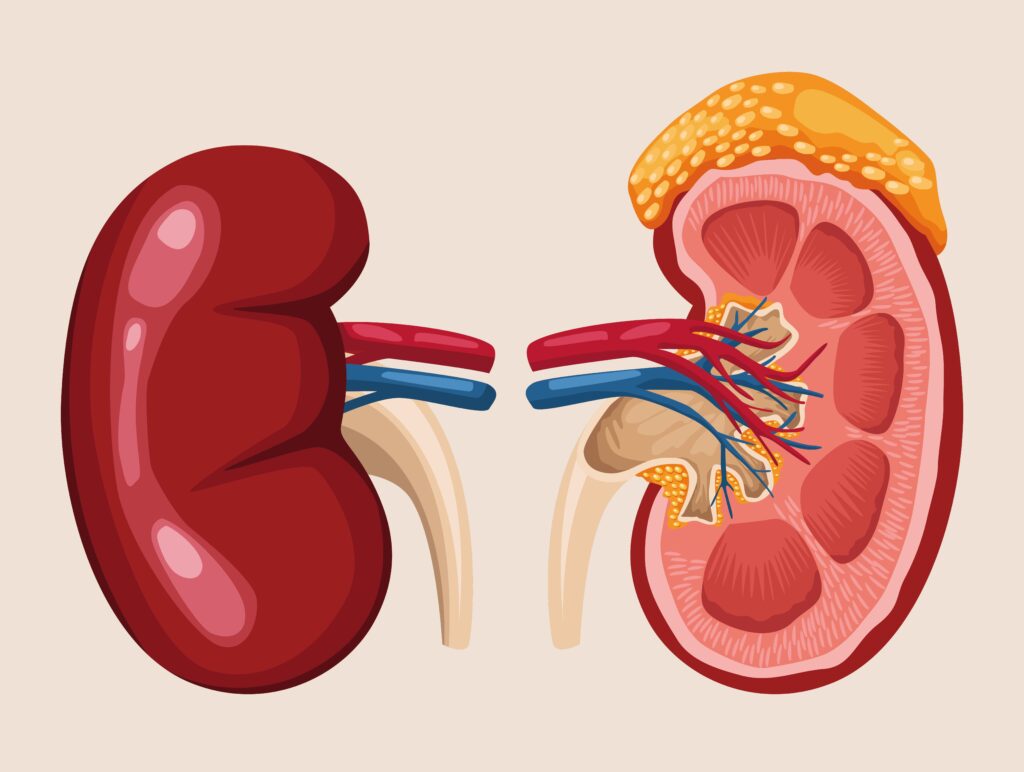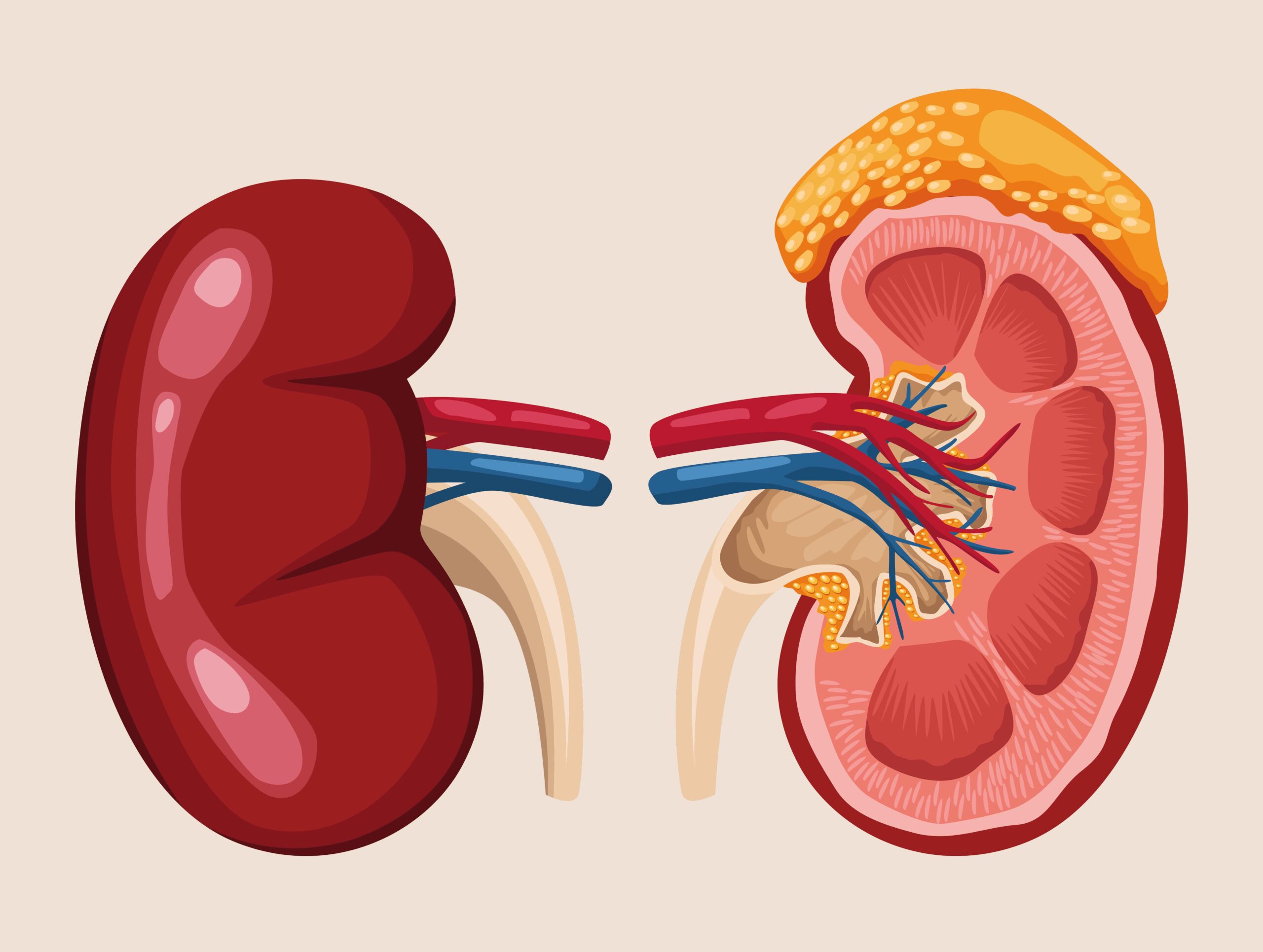Your kidneys are two of the most important organs in your body, responsible for filtering waste and regulating fluid levels. But what happens when they start to fail? Ignoring the symptoms of kidney failure can have serious consequences for your health. In this blog post, we’ll explore some key signs that may indicate a problem with your kidneys and why it’s crucial not to ignore them. Your well-being depends on it!
Introduction to Kidney Failure
Kidney failure, also known as renal failure, is a serious medical condition where the kidneys are unable to function properly. The kidneys are essential for filtering out waste products and extra fluids from the bloodstream, maintaining the balance of electrolytes and producing hormones that regulate blood pressure. When the kidneys fail, toxins and fluids build up in the body, leading to various health complications.
Kidney failure can be classified into two categories: acute and chronic. Acute kidney failure occurs suddenly and can be reversed with proper treatment. On the other hand, chronic kidney failure develops over time and is irreversible, requiring long-term management or even dialysis or kidney transplant.
Signs/Symptoms of Kidney Failure

The symptoms of kidney failure may vary depending on the severity of the condition. In some cases, there may not be any noticeable symptoms in the early stages. However, as kidney function continues to decline, you may experience one or more of these common symptoms
Changes in Urination
One of the first signs/symptoms of kidney failure is changes in urination patterns. This could include frequent urination at night (nocturia), decreased urine output or dark-colored urine.
Swelling
Another common symptoms of kidney failure is swelling in different parts of the body like ankles, feet or face due to an accumulation of excess fluid.
Fatigue
As toxins build up in your body due to decreased kidney function, you may feel exhausted and lethargic even after getting enough rest.
Shortness of Breath
Decreased levels of red blood cells caused by impaired kidney function can lead to shortness of breath or difficulty breathing.
Nausea and Vomiting
the buildup of waste products can cause nausea and vomiting, which can further contribute to dehydration and fatigue.
Hypertension
Healthy kidneys produce hormones that help regulate blood pressure; therefore, when they fail, this leads to an increase in blood pressure levels.
Changes in Appetite
Loss of appetite, food aversions and weight loss may also be experienced by individuals with kidney failure.
Understanding the Function of Kidneys
The kidneys are two small, bean-shaped organs located on either side of the spine. Though they may seem insignificant, their role in keeping our bodies functioning properly cannot be overstated. The main function of the kidneys is to filter waste products and excess fluids from the blood, which are then excreted as urine. They also help regulate the body’s electrolyte balance and produce hormones that control blood pressure and red blood cell production.
Understanding how the kidneys function is essential in recognizing the warning signs/symptoms of kidney failure. The first step in this process is understanding how blood flows through these vital organs. Blood enters the kidneys through branching arteries called renal arteries. These arteries carry oxygenated blood to tiny filtering units within the kidneys called nephrons.
Each kidney contains over a million nephrons, making them highly efficient at their job of filtering waste products and maintaining fluid balance. Nephrons consist of a glomerulus (a cluster of tiny blood vessels) surrounded by a capsule-like structure known as Bowman’s capsule. As blood passes through these structures, waste products such as urea, creatinine, and excess water are filtered out into tiny tubes called tubules while important substances like proteins and red blood cells remain in the bloodstream.
The filtered fluids then pass through a series of tubules where essential nutrients such as glucose, amino acids, and electrolytes are reabsorbed back into circulation while excess waste products continue to be eliminated from the body via urine. As urine collects in each kidney’s collecting ducts, it drains into one large tube called the ureter that carries it to the bladder for storage until it is eventually eliminated from the body during urination.
In addition to filtration, another crucial function of the kidneys is hormone production. The most well-known hormone produced by these organs is erythropoietin (EPO), which stimulates red blood cell production in bone marrow. Kidneys also play a role in regulating blood pressure by producing a hormone called renin, which helps constrict blood vessels and increase blood volume.
The kidneys are responsible for filtering waste products and maintaining fluid balance in the body. They also play a vital role in hormone production and regulating blood pressure. Understanding these functions is crucial in recognizing any warning signs/symptoms of kidney failure and seeking prompt medical attention to prevent further complications.
Common Causes of Kidney Failure

Kidney failure, also known as renal failure, is a serious condition in which the kidneys are unable to function properly and filter waste products from the blood. It is a progressive disease that can lead to serious health complications if left untreated. While there are many underlying factors that can contribute to kidney failure, there are some common causes that are important to be aware of.
Diabetes
One of the leading causes of kidney failure is diabetes, particularly type 2 diabetes. High levels of glucose in the blood can damage the small blood vessels in the kidneys over time, making them less efficient at filtering waste and fluids.
High Blood Pressure
Uncontrolled hypertension can also lead to kidney failure by damaging the blood vessels in the kidneys and causing them to lose their ability to filter waste products effectively.
Chronic Kidney Disease (CKD)
CKD refers to a gradual loss of kidney function over time due to various underlying health conditions such as high blood pressure, diabetes, or recurring infections.
Infections
Certain infections like urinary tract infections (UTIs) or chronic pyelonephritis (inflammation of the kidney) can cause scarring and damage to the kidneys if left untreated for an extended period.
Kidney Stones
When substances like calcium or uric acid build up in the kidneys, they can form hard deposits called kidney stones that may block urine flow and cause severe pain. Repeated occurrences of this condition can result in permanent damage to the kidneys.
Polycystic Kidney Disease (PKD)
This inherited disorder causes numerous fluid-filled cysts to form on both kidneys gradually, leading to their enlargement and eventual failure.
Glomerulonephritis
This is a group of diseases characterized by inflammation within tiny filtering units called glomeruli within the kidneys which results in decreased filtration abilities and eventually leads to kidney failure if left untreated.
Medications
Certain medications like non-steroidal anti-inflammatory drugs (NSAIDs), antibiotics, and contrast dye used in imaging tests can cause damage to the kidneys if not taken appropriately or in high doses.
It is essential to be aware of these common causes/symptoms of kidney failure and take the necessary precautions to prevent them. Maintaining a healthy lifestyle by exercising regularly, eating a balanced diet, managing chronic health conditions, and staying hydrated can help reduce the risk of developing kidney failure.
If you experience any symptoms of kidney failure or any underlying health conditions that may increase your risk, it is crucial to consult with your doctor for early detection and proper management. Ignoring these warning signs could lead to irreversible damage to your kidneys and affect your overall health.
Signs and Symptoms to Look Out For
Kidney failure, also known as renal failure, is a serious condition that occurs when the kidneys are no longer able to filter waste products from the blood. This can lead to a buildup of toxins and fluid in the body, resulting in various health complications. In some cases, kidney failure can be sudden and severe (acute), while in others it may develop gradually over time (chronic). Regardless of the type, recognizing the signs and symptoms of kidney failure is crucial for early detection and treatment.
One of the earliest signs/symptoms of kidney failure is changes in urination patterns. This can include increased frequency or urgency to urinate, difficulty passing urine, or dark-colored urine. As the kidneys are responsible for filtering waste products from our blood, any malfunction can result in changes to our urinary system. Another common symptoms of kidney failure is fatigue and weakness.
As toxins build up in the body due to impaired kidney function, it can lead to feelings of tiredness and general weakness. Anemia may also occur as a result of decreased production of red blood cells by the kidneys. Swelling or edema is also a noticeable sign/symptoms of kidney failure. The kidneys play a crucial role in maintaining fluid balance in our bodies. When they fail, excess fluid can accumulate, leading to swell around the eyes, hands, feet or ankles.
In more advanced stages of kidney failure, individuals may experience nausea and vomiting as well as loss of appetite which results from high levels of toxins accumulating in their bloodstream. Other digestive issues such as diarrhea or constipation may also occur due to electrolyte imbalances caused by impaired kidney function.
As mentioned earlier, one key function of healthy kidneys is filtering waste products from our blood, including excess fluids and minerals like sodium and potassium. When this process becomes compromised due to failing kidneys, it can cause an imbalance in electrolytes leading to muscle cramps or twitches. Lastly, but just as importantly, are skin issues that may arise due to kidney failure.
As the kidneys are unable to eliminate toxins properly, it can result in dry, itchy skin or darkened patches on the skin. Being aware of these signs and symptoms of kidney failure is crucial for early detection and treatment of kidney failure. If you experience any of these symptoms, it is important to consult with your doctor for proper evaluation and management. Remember, your health depends on it!
Changes in Urine Color and Amount
Changes in urine color and amount can be indicative of kidney failure and should not be ignored. The kidneys play a crucial role in filtering waste products from the blood and producing urine, so any changes in the appearance or volume of urine can be a sign of underlying health issues. One common change in urine color that may indicate kidney failure is dark or tea-colored urine.
This can be caused by the presence of blood in the urine, which is known as hematuria. The kidneys filter out excess red blood cells, so when they are damaged or not functioning properly, these cells may leak into the urine. In addition to blood, other substances such as protein and bilirubin may also cause changes in urine color. If your urine appears consistently dark or discolored, it is important to seek medical attention.
On the other hand, an abnormally light or pale-colored urine also be a warning sign/symptoms of kidney failure. This could indicate a decrease in red blood cell production due to impaired kidney function. It may also suggest dehydration or excessive fluid intake, both of which can put strain on the kidneys. Another symptoms of kidney failure to watch out for is changes in the amount of urine produced.
Healthy adults typically produce 1–2 liters of urine per day, but this can vary depending on factors such as fluid intake and physical activity levels. If you notice a significant increase or decrease in your daily output without any obvious explanation, it could be a red flag for kidney dysfunction. In some cases of kidney failure, individuals may experience frequent urges to urinate even if very little is actually produced each time.
This could indicate that there is an obstruction preventing proper drainage from the bladder. Additionally, foamy or frothy looking urine may also point towards underlying kidney problems as it suggests high levels of protein being excreted through urination instead of being absorbed back into the body. It is essential to pay attention to any changes in your urine color or amount and to consult a doctor if you notice any abnormalities.
These symptoms could be indicative of kidney failure or other underlying health issues that require prompt treatment to prevent further damage to the kidneys. By monitoring your urine and seeking medical attention if necessary, you can take proactive steps towards protecting your kidney health.
Swelling in the Legs, Ankles and Feet

Swelling in the legs, ankles, or feet is a common symptoms of kidney failure, also known as edema. This condition occurs when there is an excessive accumulation of fluid in the body’s tissues. In healthy individuals, the kidneys play a crucial role in maintaining fluid balance by filtering out excess fluids and waste products from the blood.
However, when the kidneys are not functioning properly due to kidney failure, they are unable to remove these fluids efficiently. This leads to fluid retention and swelling in various parts of the body, particularly in the lower extremities. Edema can be easily identified by visible swelling in the legs, ankles, or feet. The skin may appear stretched and shiny and may feel tight or painful to touch.
In severe cases, the swelling may extend up to the thighs and even into the hands and face. It is important to note that edema caused by kidney failure tends to worsen during periods of sitting or standing for long periods of time. Apart from visible swelling, other symptoms associated with edema include weight gain despite maintaining a regular diet, difficulty walking or bending due to stiffness in affected areas, and changes in skin texture such as dryness or flakiness.
The underlying cause of edema during kidney failure is an imbalance of electrolytes such as sodium and potassium in the body. When these levels are disrupted due to impaired kidney function, it can lead to an increase in water retention, causing swelling. If left untreated, edema can lead to serious complications such as skin ulcers or infections due to constant pressure on affected areas.
It may also indicate advancing stages of kidney failure where there is significant damage done to your kidneys’ ability to filter waste products from your blood. Therefore, if you experience persistent swelling in your legs, ankles or feet along with any other symptoms mentioned above for more than two weeks without any apparent reason like injury or pregnancy, it could be an indication of underlying kidney problems.
It is essential to consult a doctor immediately for proper diagnosis and treatment. Swelling in the legs, ankles, or feet should not be ignored as it could be an early warning sign/symptoms of kidney failure. Timely intervention can help prevent further damage and improve your overall health. So, if you notice any of these symptoms, do not hesitate to seek medical attention. Your kidneys are vital organs and taking care of them is crucial for your well-being.
Fatigue and Weakness

Fatigue and weakness are common symptoms experienced by individuals with kidney failure. This is due to a decrease in kidney function, which leads to a build-up of toxins and waste products in the body. These toxins can make you feel tired and weak, as well as affect other organs and systems in your body.
One of the main functions of the kidneys is to filter waste products from the blood. However, when they are not functioning properly, these wastes can accumulate in the body, causing fatigue and weakness. The build-up of toxins can also affect red blood cell production, leading to anemia. Anemia is characterized by a decrease in red blood cells, which are responsible for carrying oxygen to different parts of the body. When there is a lack of oxygen supply due to anemia, it can result in feelings of weakness and fatigue.
In addition to toxins and anemia, electrolyte imbalances caused by kidney failure can also contribute to fatigue and weakness. Electrolytes play a crucial role in maintaining proper nerve and muscle function. When there is an imbalance in electrolyte levels such as sodium or potassium, it can cause muscle weakness and fatigue.
Moreover, people with advanced kidney failure often experience changes in their hormone levels that can also contribute to feelings of fatigue and weakness. The kidneys produce a hormone called erythropoietin (EPO), which stimulates bone marrow to produce red blood cells. In cases of kidney failure, EPO production decreases significantly, leading to decreased red blood cell production resulting in anemia mentioned earlier.
Aside from physical factors contributing to fatigue and weakness, psychological factors may also have an impact on individuals with kidney failure. Dealing with chronic illness requires significant lifestyle adjustments that may lead to feelings of stress or depression that could manifest as physical symptoms of kidney failure such as tiredness or lethargy.
It is essential not to ignore these symptoms because chronic fatigue syndrome (CFS) has been linked with reduced renal function among adults. Furthermore, prolonged fatigue and weakness can significantly impact daily activities and quality of life.
If you are experiencing persistent fatigue and weakness, it is crucial to consult a healthcare professional for proper evaluation and management. Early intervention can prevent further complications of kidney failure and improve your overall health. Remember, your well-being depends on taking care of yourself, so do not ignore any symptoms that may indicate underlying health conditions like kidney failure.
Nausea, Vomiting, and Loss of Appetite
Nausea, vomiting, and loss of appetite are common symptoms of kidney failure. These symptoms can be caused by a variety of factors such as dehydration, medication side effects, or an underlying health condition. However, when these symptoms occur in conjunction with other signs/symptoms of kidney failure, it is important not to ignore them.
Nausea and vomiting are often linked to kidney failure because the kidneys play a crucial role in filtering waste products from the blood. When the kidneys fail to function properly, toxins and waste products can build up in the body, leading to feelings of nausea and prompting vomiting as a natural response to rid the body of these substances. In severe cases of kidney failure, this buildup can also cause a metallic taste in the mouth and an unpleasant breath odor.
Loss of appetite is another symptom that should not be overlooked when it comes to kidney failure. The kidneys produce hormones that stimulate hunger and regulate metabolism. When they are unable to do so efficiently due to their impaired function, individuals with kidney failure may experience a decreased desire for food or even feel full after eating only small amounts. This can lead to unintentional weight loss and malnutrition if left untreated.
If you have been experiencing persistent nausea, vomiting or loss of appetite along with other symptoms of kidney failure such as fatigue, difficulty urinating or changes in urine color or frequency, it is crucial to seek medical attention immediately. These could be warning signs indicating that your kidneys are not functioning properly.
Moreover, studies have shown that individuals with chronic kidney disease (CKD) who experience nausea are at an increased risk of developing more severe forms of CKD over time. This highlights the importance of addressing these symptoms promptly as early detection and treatment can help slow down further damage to the kidneys.
The good news is that there are ways you can manage these symptoms while receiving appropriate treatment for kidney failure. Your doctor may prescribe medications or recommend lifestyle changes such as dietary modifications and increased fluid intake to help manage nausea, vomiting, and loss of appetite.
While nausea, vomiting, and loss of appetite can be caused by various factors, they should not be taken lightly when they occur in conjunction with other symptoms of kidney failure. Timely medical intervention is crucial for proper management and treatment of this condition. Remember to listen to your body and seek professional help if you experience any persistent or worsening symptoms. Your health depends on it.
Difficulty Breathing or Shortness of Breath
One of the most common and concerning symptoms of kidney failure is difficulty breathing or shortness of breath. This symptom can be quite alarming and should never be ignored, as it can indicate a serious underlying issue with your kidneys.
The kidneys play a crucial role in maintaining the balance of fluids in the body. When they are not functioning properly, excess fluid can build up in the body, including around the lungs. This buildup puts pressure on the lungs, making it difficult for them to expand fully and causing a feeling of tightness in the chest. This results in difficulty breathing or shortness of breath.
In addition to fluid buildup, kidney failure can also lead to anemia – a condition where there is a decrease in red blood cells that carry oxygen throughout the body. Without enough oxygen circulating through your body, you may experience shortness of breath even with minimal physical exertion.
Difficulty breathing or shortness of breath is often accompanied by other symptoms of kidney failure such as fatigue, dizziness, and weakness. These symptoms may also be caused by anemia due to kidney failure. It is important to pay attention to your body and seek medical attention if you experience any combination of these symptoms.
Furthermore, certain risk factors can increase your chances of developing kidney failure-related respiratory issues. These include smoking, high blood pressure, diabetes, and heart disease. If you have anyone or more of these risk factors and are experiencing difficulty breathing or shortness of breath along with other kidney failure symptoms, it is crucial that you see a doctor immediately for proper diagnosis and treatment.
Ignoring this symptom can have severe consequences on your health as it may lead to pulmonary edema – a life-threatening condition where excess fluid accumulates in the lungs, causing acute respiratory distress and possible lung collapse. In extreme cases, untreated pulmonary edema can result in death.
It is essential to address difficulty breathing or shortness of breath promptly when it occurs along with other signs of kidney failure. Early detection and treatment can prevent further damage to your kidneys and improve your overall health. So, if you are experiencing this symptom, do not ignore it. Consult with a medical professional to determine the underlying cause and develop an appropriate treatment plan.
Difficulty breathing or shortness of breath is a crucial symptom of kidney failure that should never be ignored. It can indicate serious complications and requires immediate medical attention for proper diagnosis and treatment. Pay attention to your body’s signals and seek help promptly to ensure the best possible outcome for your health.
How to Get Tested for Kidney
When it comes to kidney health, early detection is key in preventing further damage and potentially fatal outcomes. Therefore, if you are experiencing any symptoms of kidney failure, it is crucial to get tested for kidney function as soon as possible.
The first step in getting tested for kidney function is to consult with your primary care physician or a nephrologist (a doctor who specializes in kidney diseases). They will review your medical history and ask about any symptoms you may be experiencing. It is important to be honest and thorough with this information so that the doctor can make an accurate diagnosis.
One of the most common tests used to assess kidney function is a blood test called creatinine level test. This test measures the amount of waste product (creatinine) in your blood. High levels of creatinine indicate that your kidneys are not functioning properly as they are unable to filter out this waste product effectively.
Another commonly used test is a urine test called urinalysis. This involves collecting a sample of your urine and analyzing it for the presence of protein, blood, or other abnormalities. The presence of these substances can also indicate problems with kidney function.
In some cases, imaging tests such as ultrasound or CT scans may be recommended to take a closer look at the structure and size of your kidneys. These tests can help identify any physical obstructions or abnormalities that could affect kidney function.
If the results from these initial tests suggest possible issues with your kidneys, your doctor may recommend more specialized tests such as a renal biopsy. This involves taking a small sample of tissue from one of your kidneys for further analysis. While this procedure may sound intimidating, it can provide valuable information regarding the cause and severity of any potential kidney problems.
It is important to note that getting tested for kidney function does not necessarily mean that you have kidney failure – rather, it helps doctors diagnose any underlying issues early on so that appropriate treatment can be initiated before irreversible damage occurs.
If you are experiencing symptoms of kidney failure such as changes in urination frequency or appearance, persistent fatigue and weakness, or swelling in the hands and feet, it is crucial to get tested for kidney function. Early detection and treatment can make a significant difference in managing kidney diseases and ensuring better overall health. So do not ignore these symptoms – your kidneys (and your life) depend on them.
FAQ
What are the common symptoms of kidney failure?
Common symptoms of kidney failure include swelling in the legs, ankles, or feet, fatigue, and changes in urination frequency or color.
Can kidney failure cause swelling in the body?
Yes, kidney failure can lead to edema, which is swelling caused by fluid retention, often seen in the legs, ankles, or feet.
Are there noticeable symptoms of kidney failure in its early stages?
Early stages of kidney failure may not have noticeable symptoms, but as the condition progresses, symptoms like fatigue and changes in urination may occur.
Do symptoms of kidney failure worsen over time?
Yes, symptoms of kidney failure can worsen over time, especially if the underlying cause is not addressed or if the condition progresses.
Can kidney failure cause changes in urine output?
Yes, kidney failure can lead to changes in urine output, such as increased or decreased frequency, or changes in color and odor.
Are there specific symptoms of kidney failure in children?
Children with kidney failure may experience symptoms such as poor growth, delayed development, and changes in behavior.
Can kidney failure cause fatigue and weakness?
Yes, kidney failure can lead to fatigue and weakness, as the kidneys play a role in filtering waste and maintaining electrolyte balance, which can affect energy levels.
Are there any dietary changes that can help manage symptoms of kidney failure?
Yes, a low-protein, low-sodium diet is often recommended to help manage symptoms of kidney failure and reduce strain on the kidneys.
Can symptoms of kidney failure be managed with medication?
Some symptoms of kidney failure, such as high blood pressure and swelling, can be managed with medication, but treatment will depend on the underlying cause and stage of kidney failure.
Is kidney failure a reversible condition?
In some cases, acute kidney failure can be reversible with prompt treatment, but chronic kidney failure is often progressive and may require long-term management.

